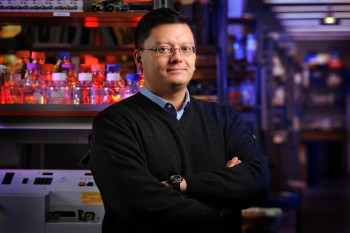Other scientific activities sponsored by the Center on the Developing Child include research on brain plasticity, executive function and self-regulation, and program effectiveness.
Related Activities
The Conte Center at Harvard University

Led by neurobiologist and Center-affiliated faculty member Takao Hensch, the Conte Center at Harvard University is dedicated to basic neuroscience research that probes the developmental origins of mental illness. Funded by the National Institute of Mental Health, scientists in the Conte Center are pioneers in the diverse fields of brain plasticity, connectomics, genomic imprinting, and super-resolution imaging, exploring the alterations in neural circuits that underlie disorders such as autism, schizophrenia, anxiety, and depression.
I-LABS Collaboration
Center-affiliated investigators are currently conducting a cluster of research projects in conjunction with a complementary group of studies based at the Institute for Learning and Brain Sciences (I-LABS) at the University of Washington. These projects focus on the themes of 1) critical periods in brain development and 2) the neural basis of developing capacities in executive function and self-regulation.
National Forum on Early Childhood Policy and Programs
The National Forum on Early Childhood Policy and Programs is a direct outgrowth of another Center initiative, the National Scientific Council on the Developing Child. The Forum was established to complement the Council’s work, which aims to explain why public investments should be made in the early childhood years. The Forum’s work attempts to answer what those investments should be and how they should be made, and, to that end, it assesses and interprets program evaluation research.
Communicating the Science
Science has an important role to play in helping policymakers and practitioners respond to complex issues affecting children. Yet the science does not always speak for itself. Indeed, misunderstanding scientific research has contributed as much confusion as clarity to important public debates. With this in mind, we employ a knowledge translation process that helps present key findings about the science of early childhood in clear, accurate, and uniform ways, equipping change agents to drive science-based innovation.
